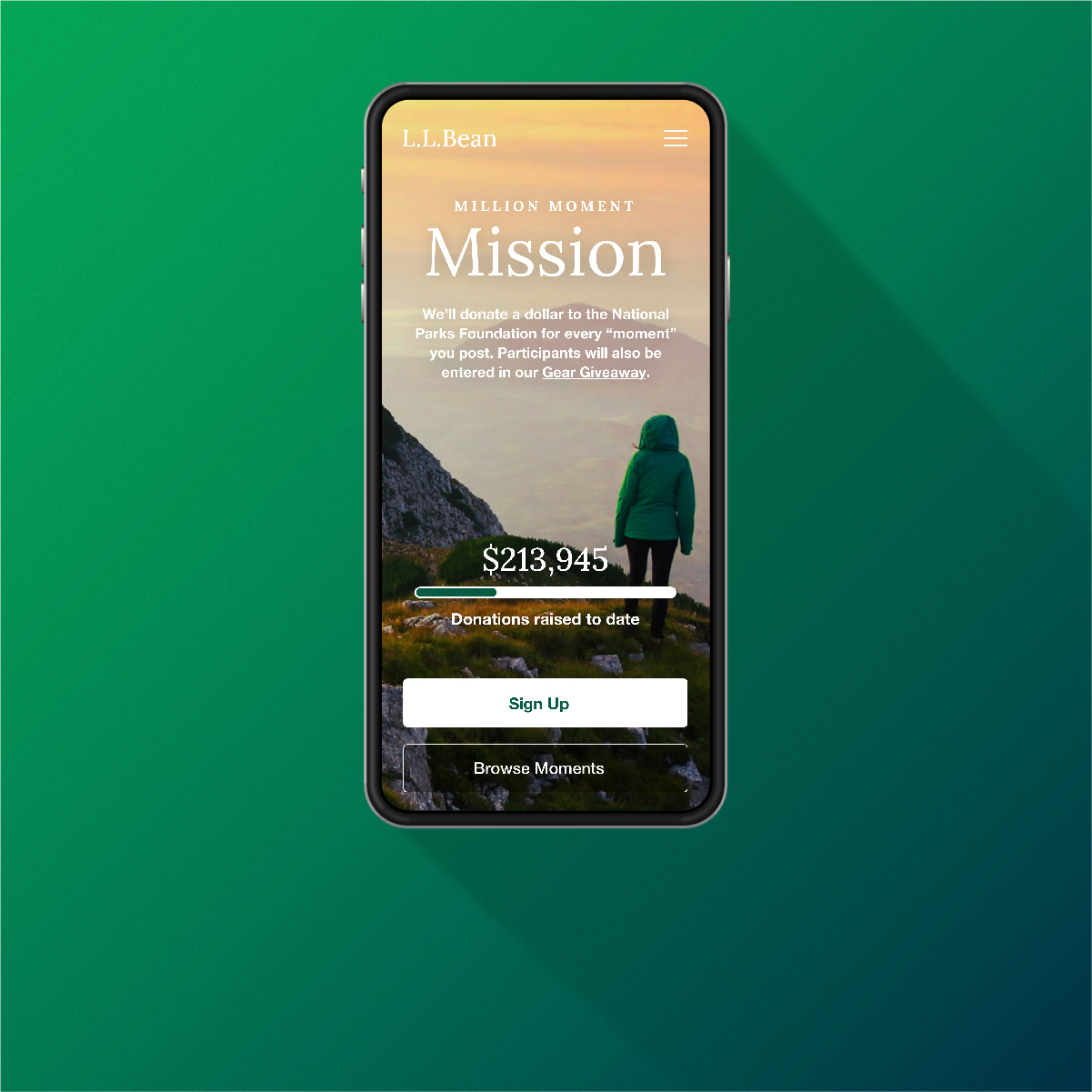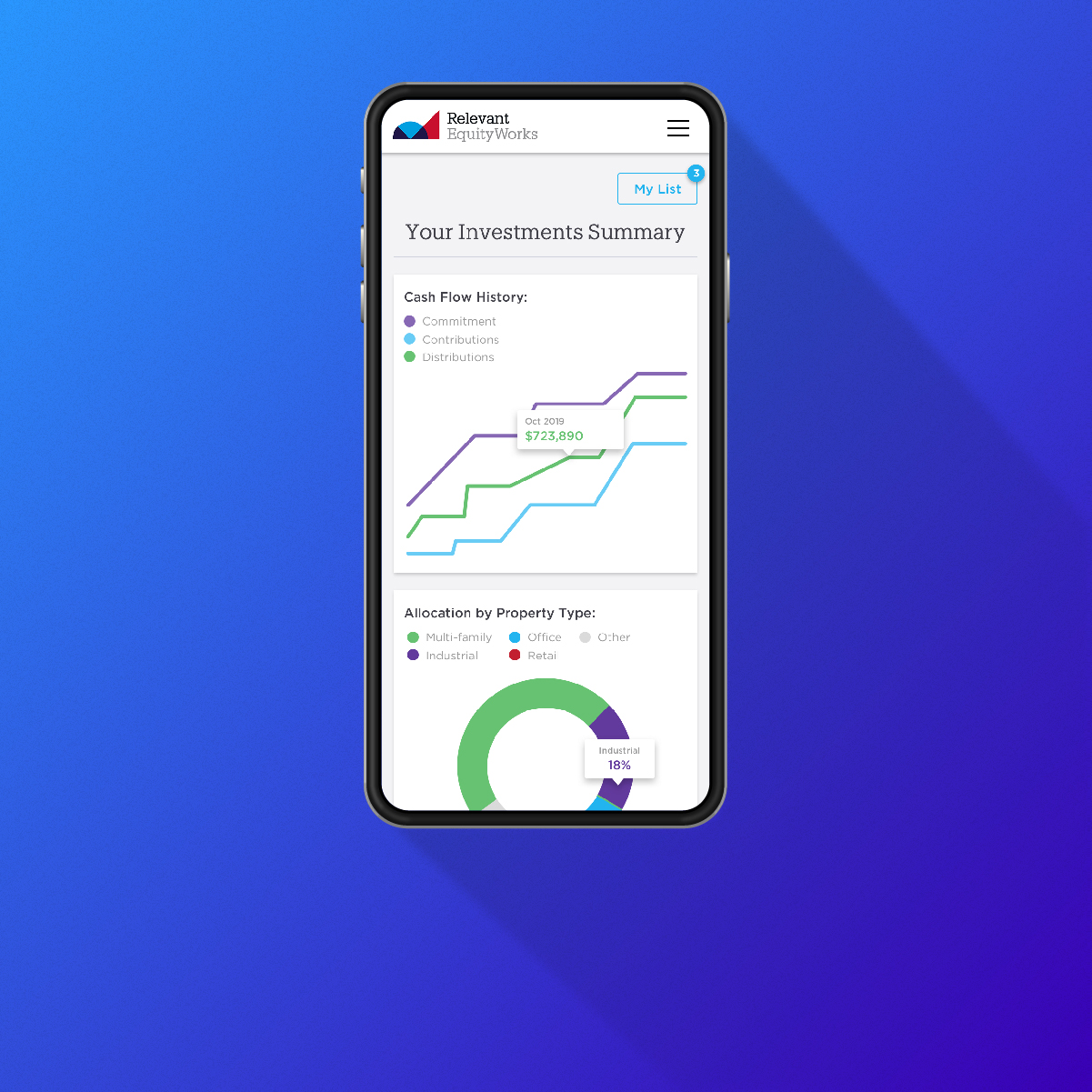Kestrel Aircraft
The plane was ready. The brand wasn’t.
The pressure was intense. In ten weeks Kestrel Aviation would debut their brand new turbo-prop plane on aviation’s largest stage: the annual AirVenture in Oshkosh, Wisconsin. Our challenge was to develop brand materials, launch a website to capture product reservations, and produce all of the collateral necessary for the event.
User Interviews
Web Design
Branding
Logo Design
Project Management
Airplane Graphics
Event Graphics
Video Production
Print Design
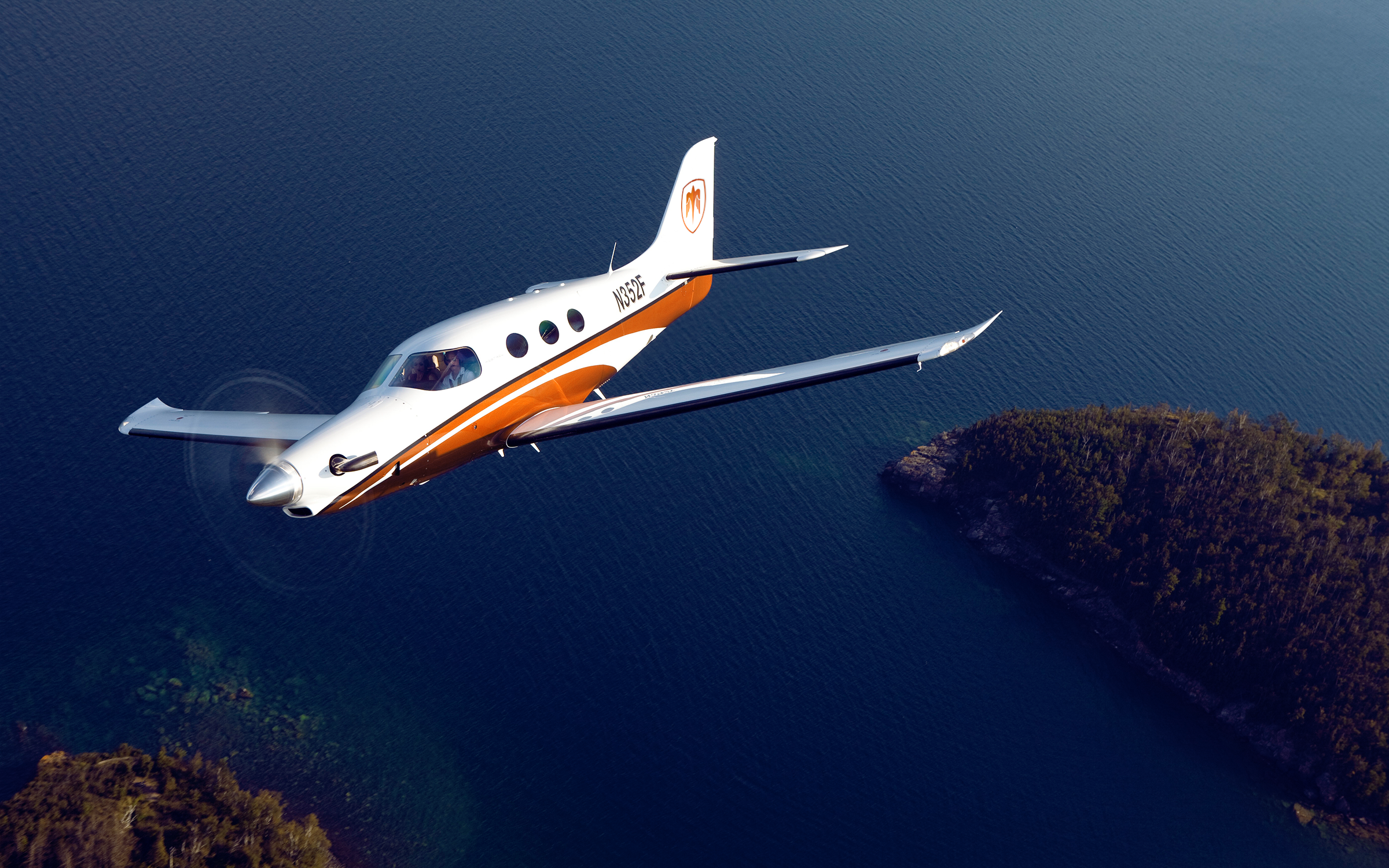
Kestrel Aircraft Graphics
Aggressive deadlines require planning
Meeting Kestrel's deadline required overlapping workflows, developing the brand while also building the website. The traditional waterfall process of brand development wasn't realistic. Our team had to establish a vision quickly, obtain buy-in from all stakeholders, and determine an order of operations that let us start building and thinking about the brand simultaneously.
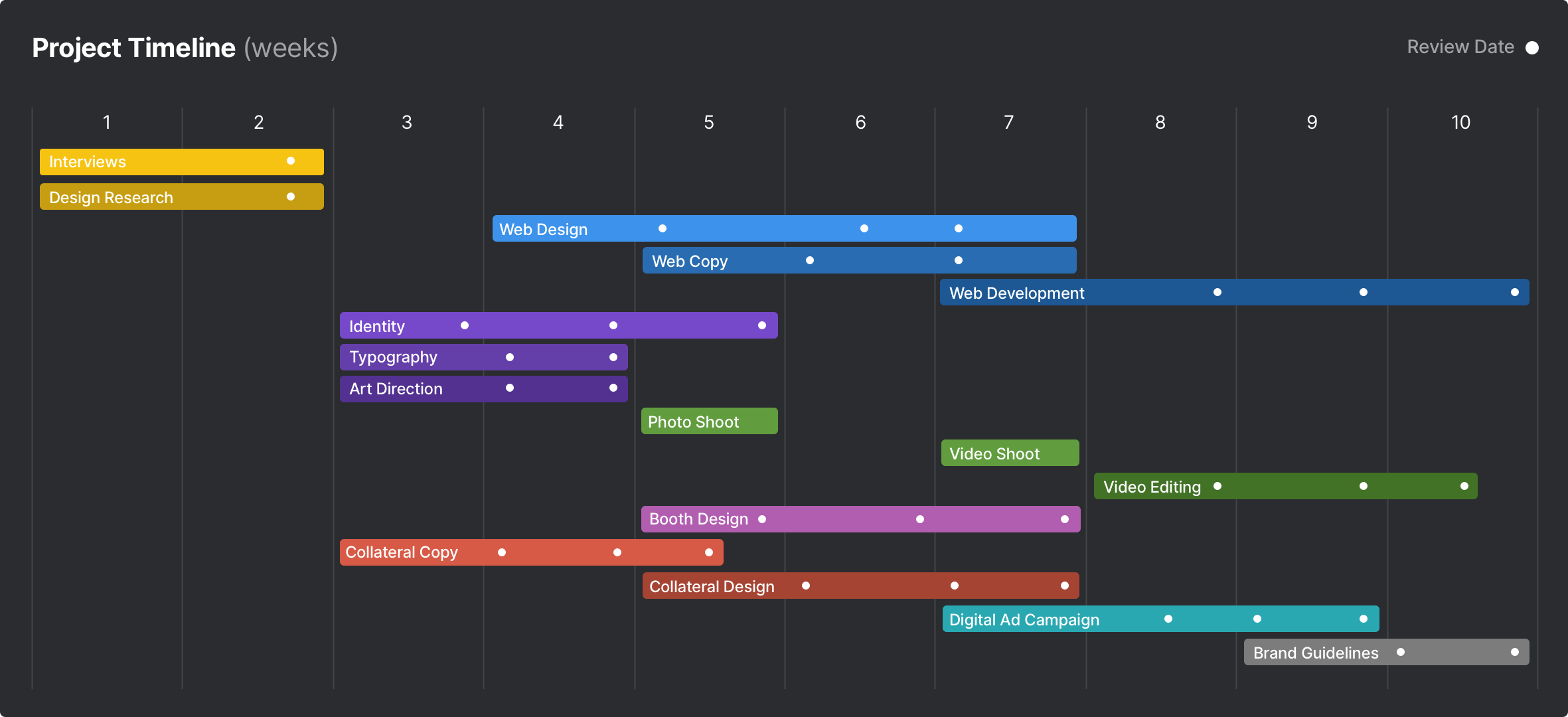
Project Planning
Lifestyle pilots care about freedom
We conducted several interviews with owner-operator pilots and learned that they fall into two categories: working pilots, and lifestyle pilots. We learned that working pilots care about technical specifications above all else, while lifestyle pilots care about the freedom flying offers. They want to know that the aircraft can fly in and out of challenging terrain, and about weight capacity for family and luggage.
Knowing that the Kestrel would be priced dramatically above an entry level Cessna—the standard among our working pilots—we focused on the feedback lifestyle pilots provided.
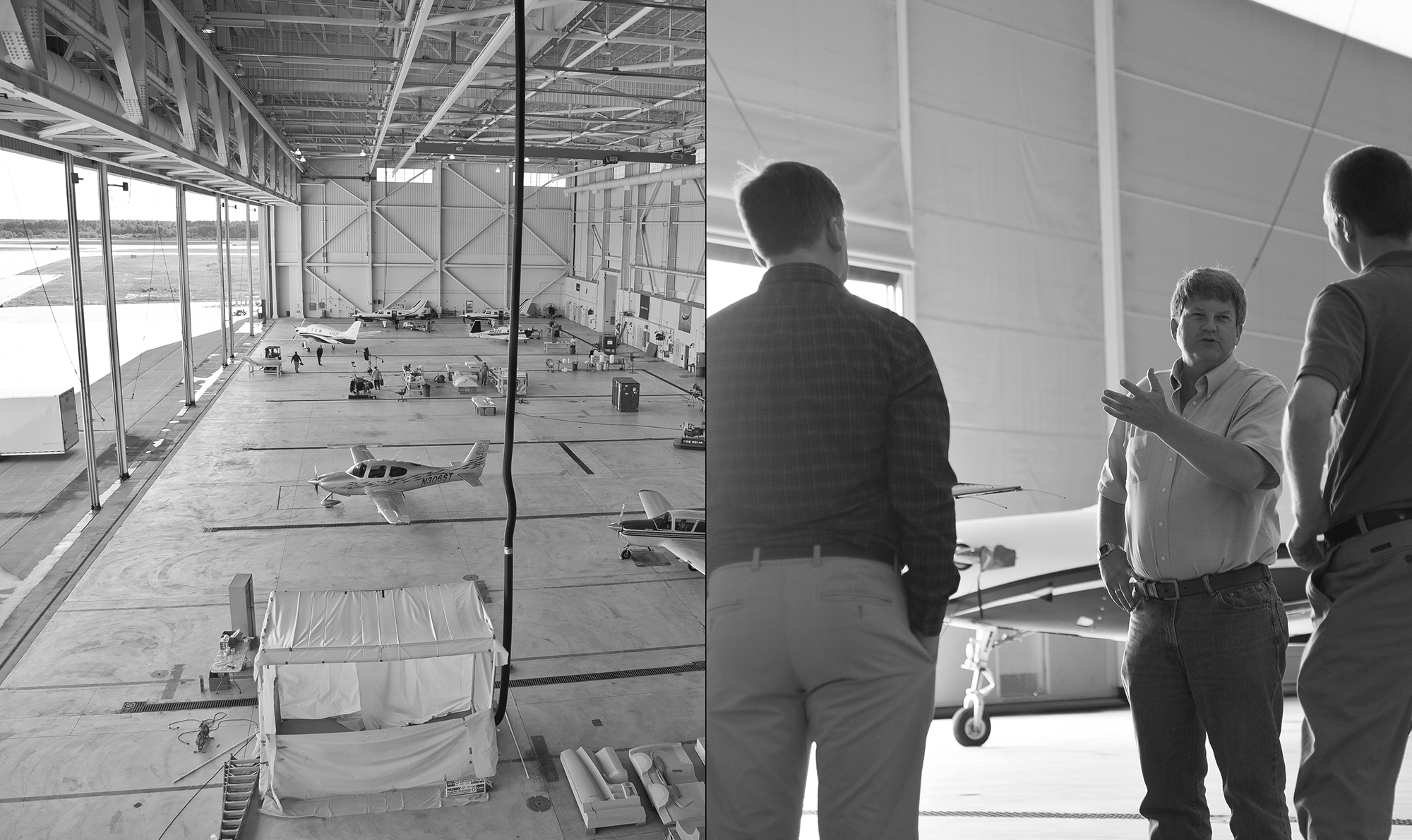
Interviewing pilots and Kestrel team members
Reservation capture was a critical component
The website goal was twofold: establish the brand voice, and capture reservations for ongoing aircraft production. Producing planes is an expensive business, so reservation capture was critical in financing production. To keep design and development feasible, we had to limit the scope and focus on landing page conversions. The video below captures our vision for the website and brand voice.
Animated landing page layout
To refine the brand we looked to the past
With some of the technical aspects of production underway, we refocused on building brand materials and guidelines.
At a $2.5 million price tag, the Kestrel lands firmly in the highest end of luxury purchases. Our final designs needed to stand confidently next to some of the most exclusive brands in the world to be successful. We immersed ourselves in the visual language of luxury, and history, to set a baseline for visual design.
A venerable history
The original design for Kestrel began across the Atlantic at Farnborough Aircraft, in the mind of Richard Noble, the British entrepreneur known for breaking the sound barrier on land. He envisioned a powerful, single-engine turbo-prop that could compete with jets for speed, but not be limited by their need for long runways and co-pilots. To achieve this combination of power and agility the Kestrel team looked to history and found a compelling design in Royal Air Force fighters from World War II.
As an homage to this lineage, we began our design research with the insignias of mid-century Allied Air Forces.
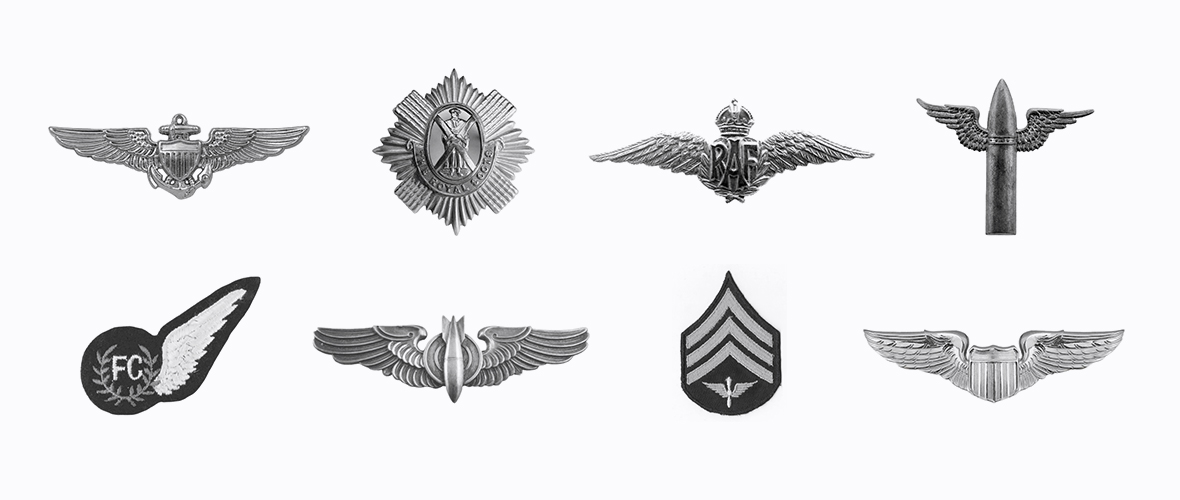
Research Imagery
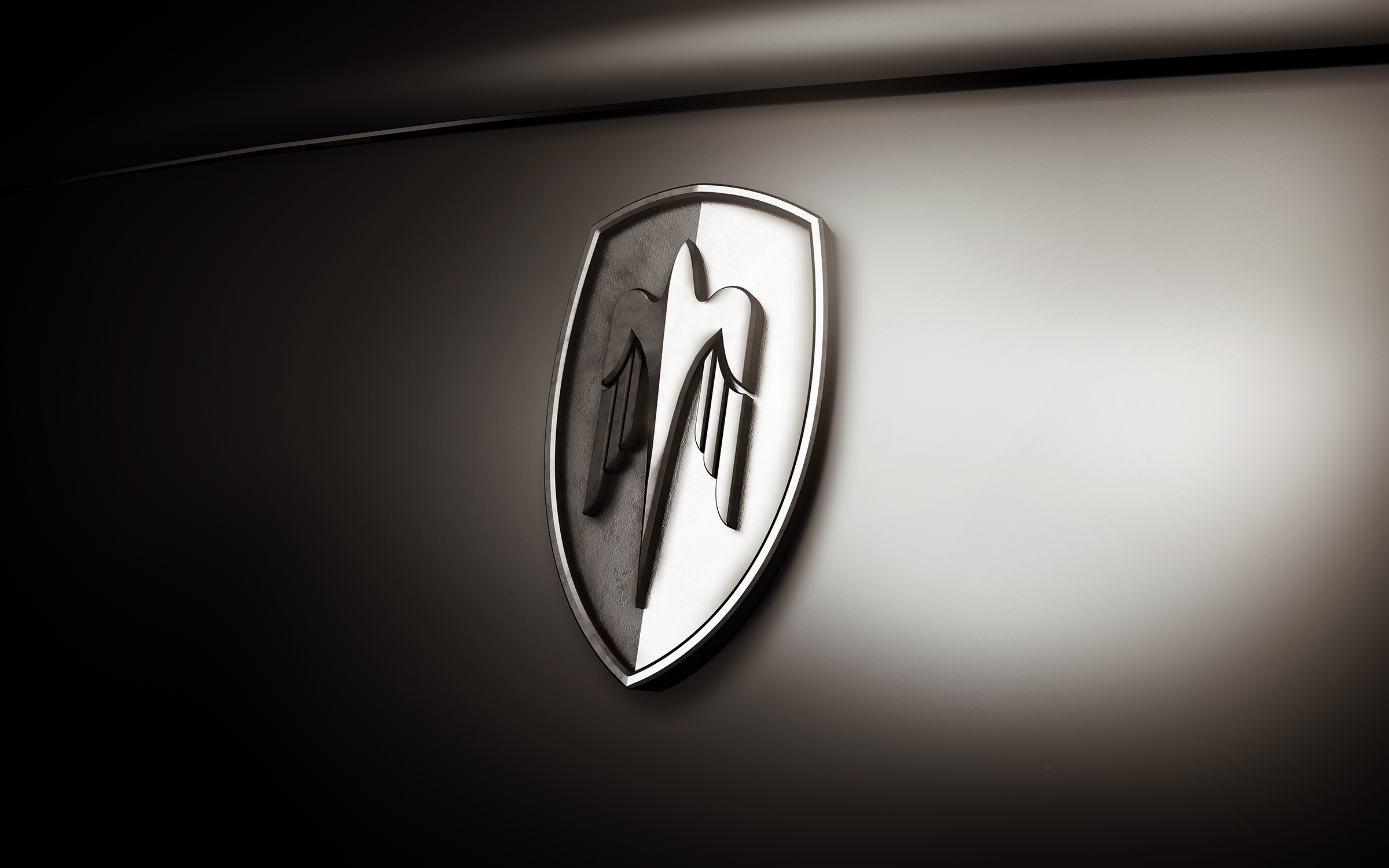
Finished Three Dimensional Crest Logo
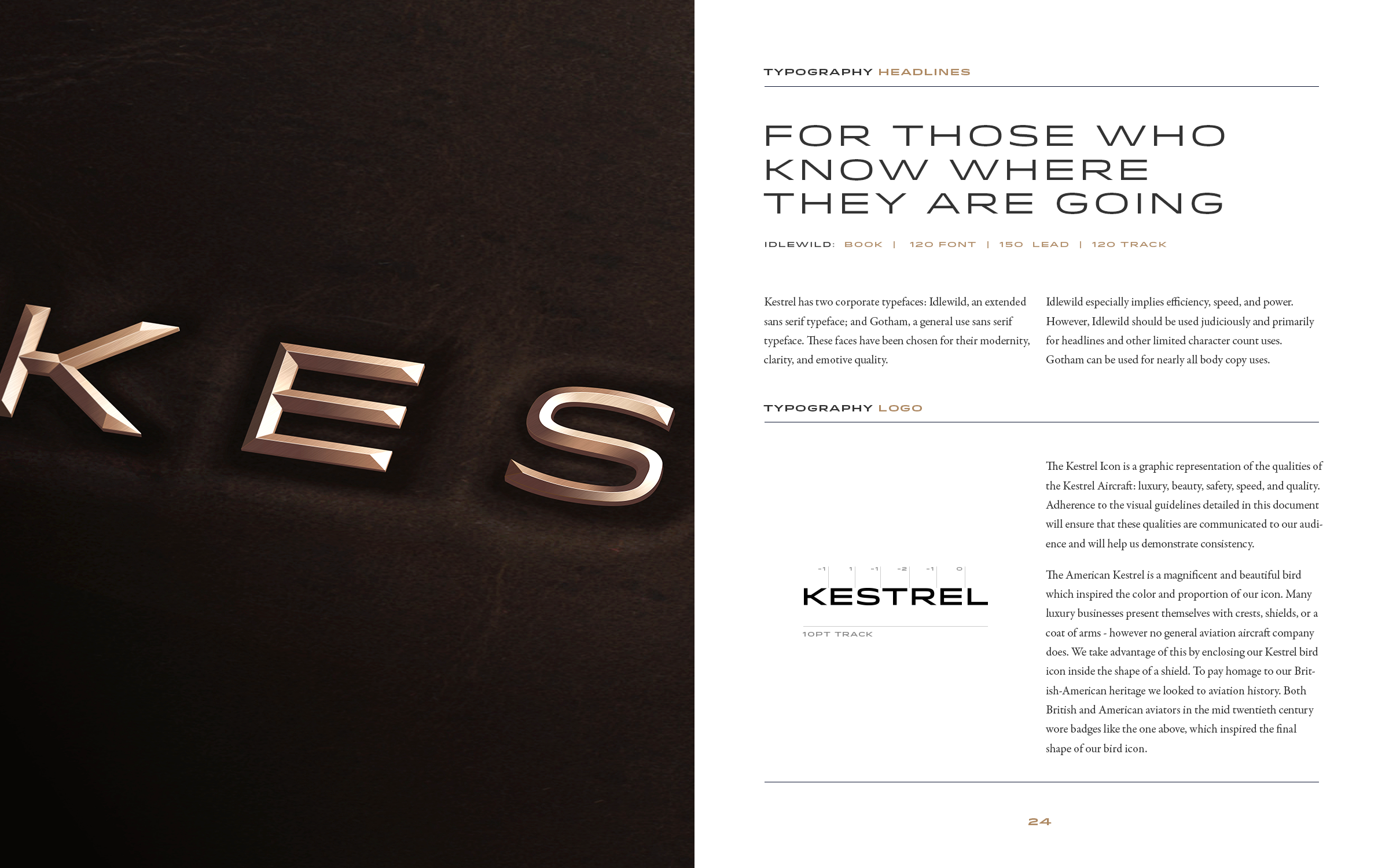
Sample Page from Brand Guidelines
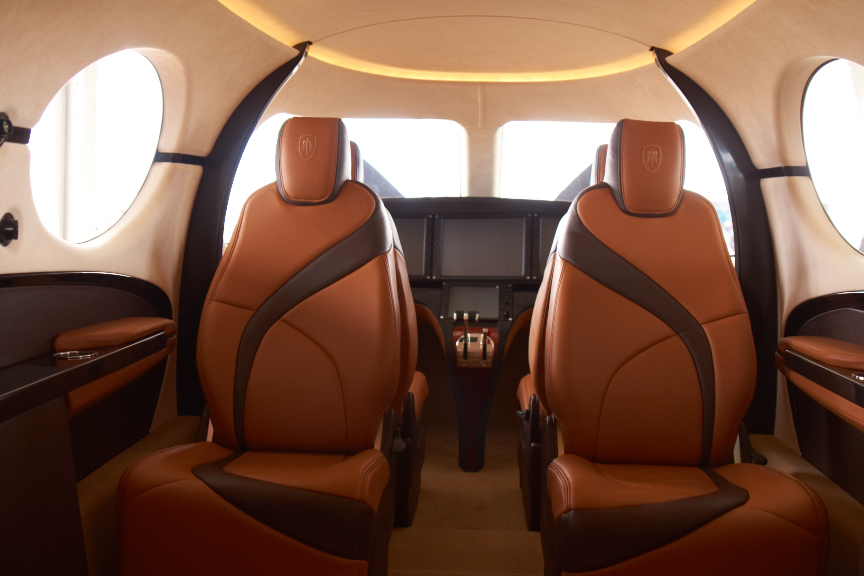
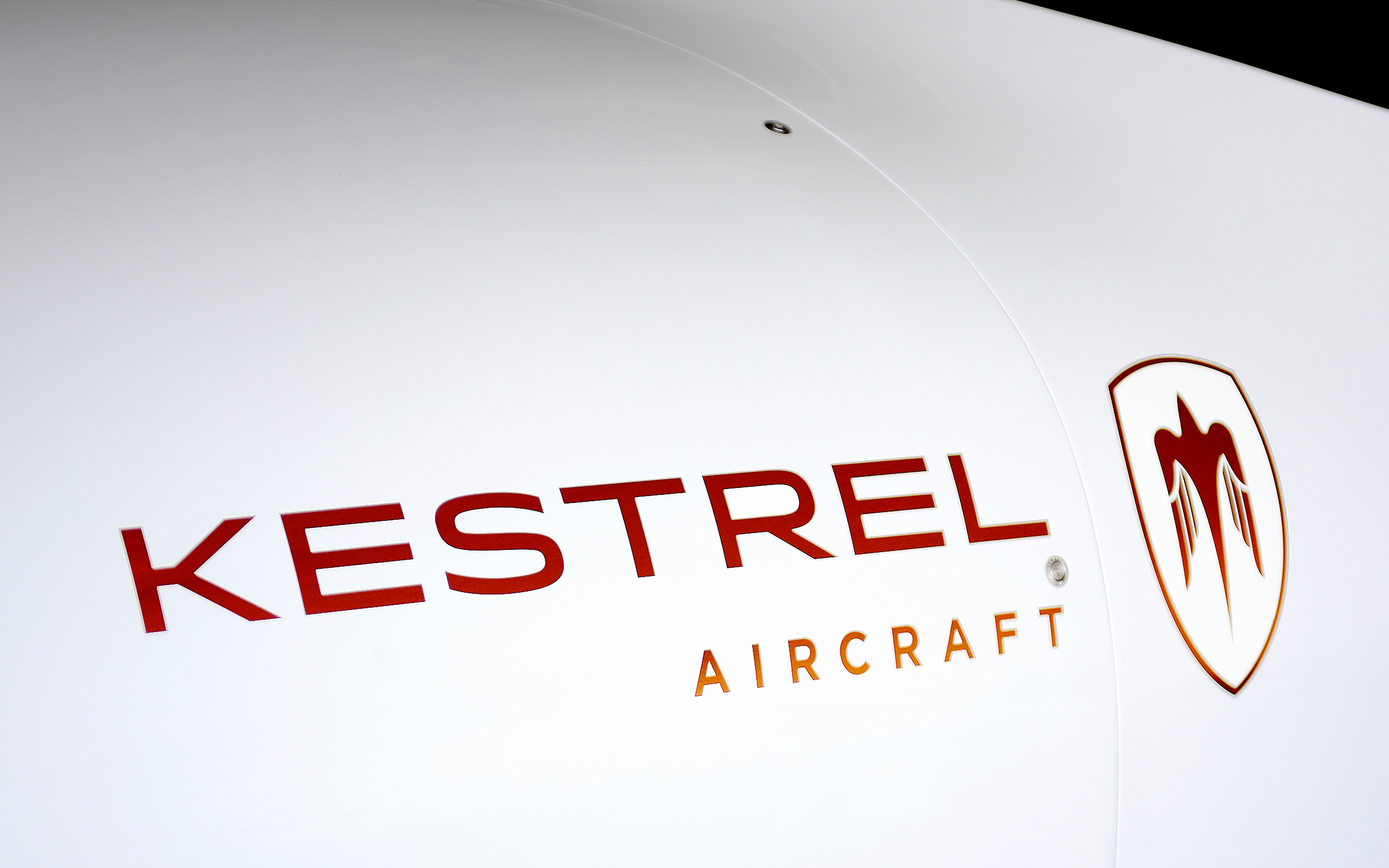
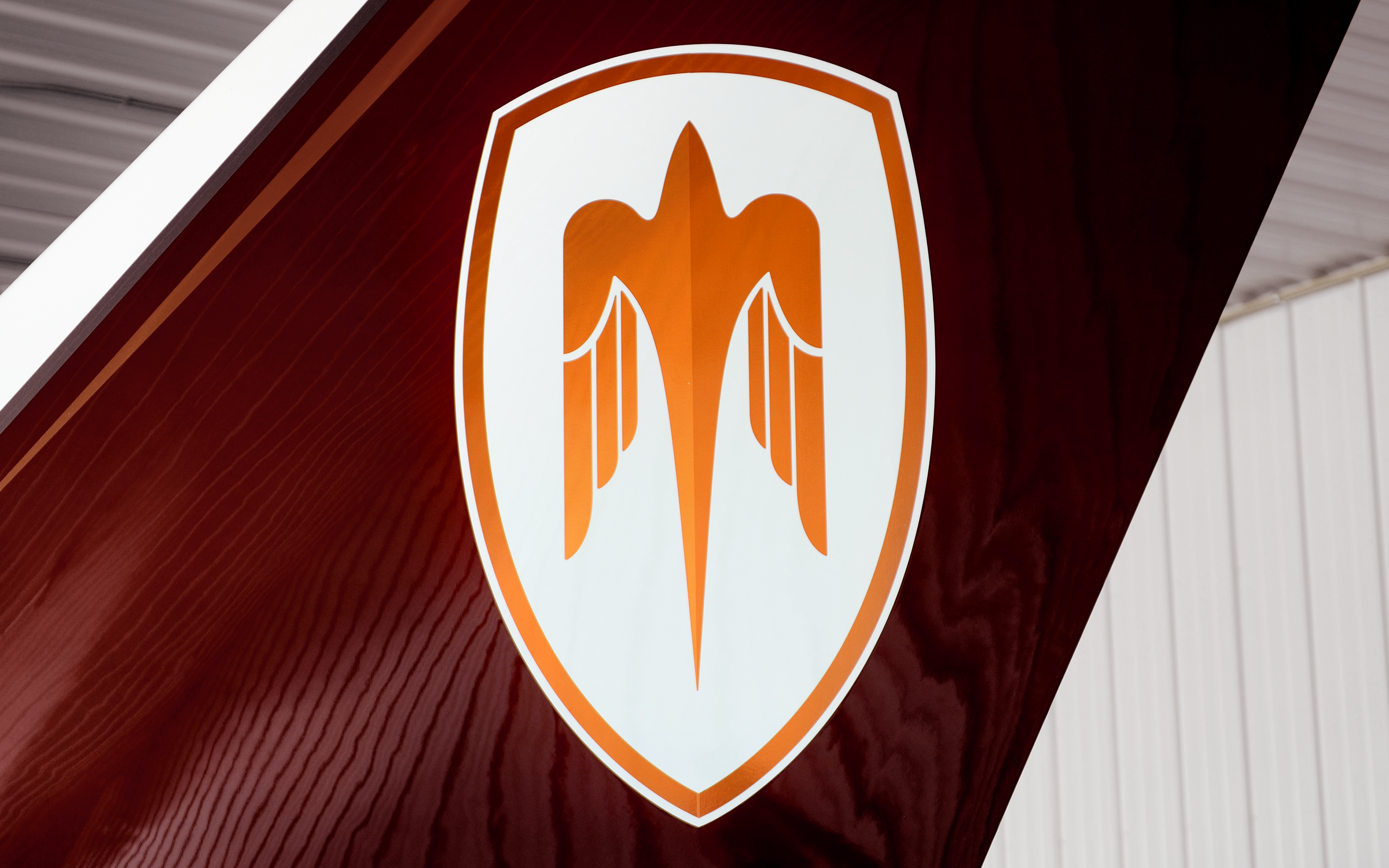
Various shots of airplane graphics and interior
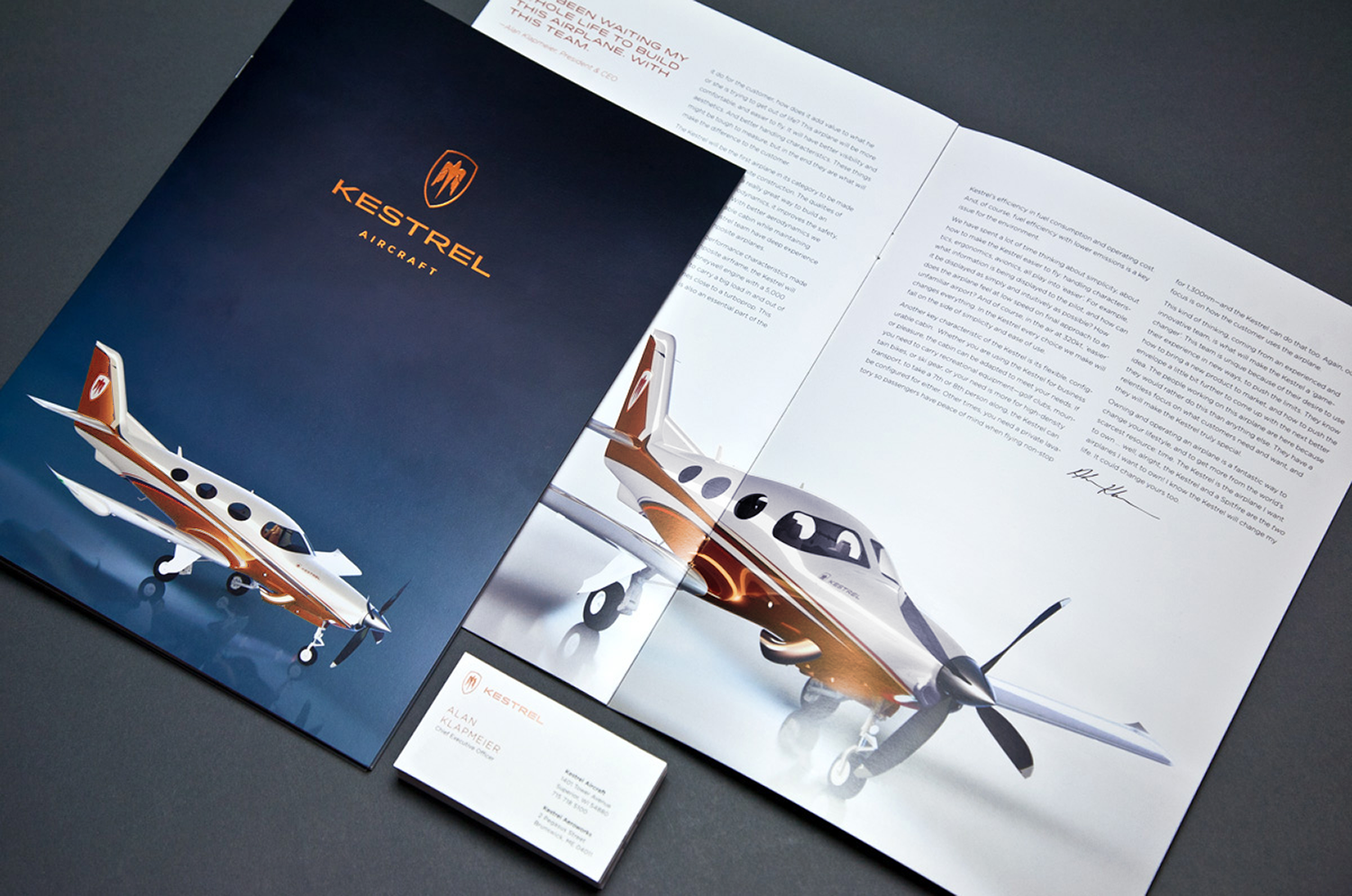
Brochure and Business Cards
Animated logo and color palette
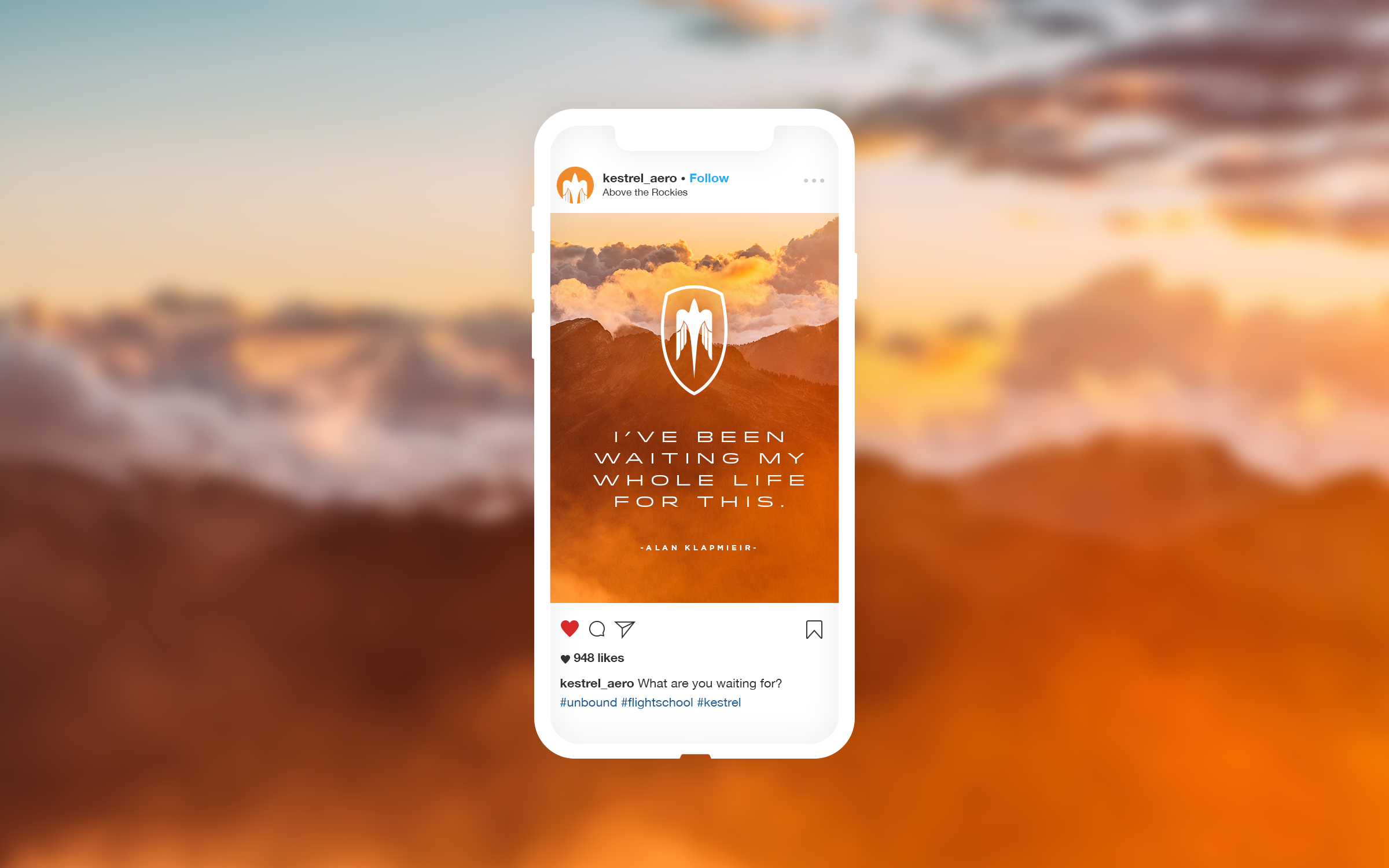
Social Media Campaign Image
Re-introducing Kestrel to the world of flying
The capstone component for introducing the new Kestrel brand to the world included an interview with their lauded CEO, Alan Kalpmeier in an enormous hangar at their Maine headquarters.
Interview with Alan Kalpmeier, CEO Kestrel Aircraft
"This is exactly what we needed."
By the end of our engagement we had produced a brand identity system, brand guidelines, a website, brochure, business cards, campaign ads, environmental graphics, and a company introduction video. While our work for Kestrel has since been recognized in several award shows including ReBrand 100 (national), Hatch (regional), and Graphis (international), we’re most proud of what our client told us after the unveiling at Oshkosh AirVenture, “This is exactly what we needed.”
